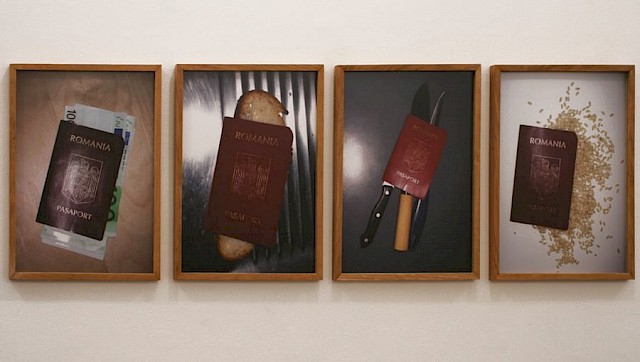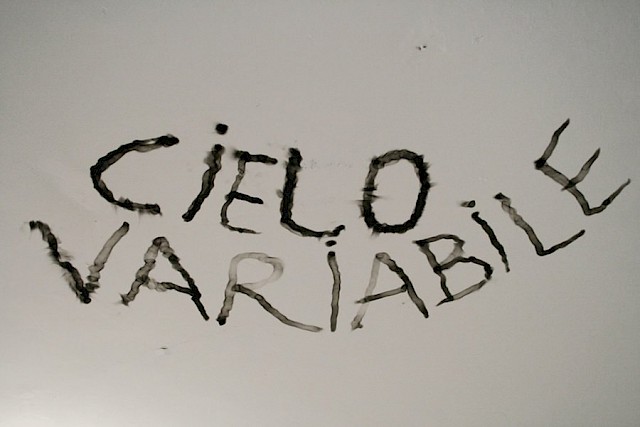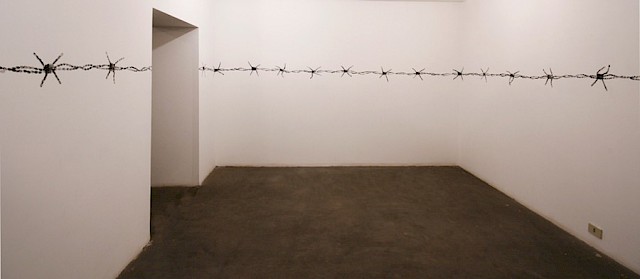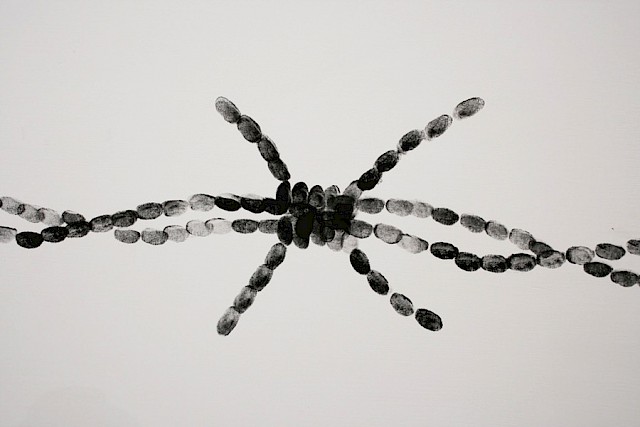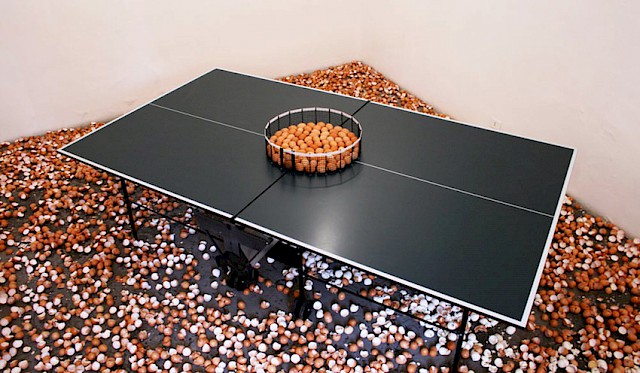Mircea Cantor
15.Dec.07
31.Jan.08

Magazzino d’Arte Moderna is pleased to announce the first solo exhibition in Rome by Mircea Cantor. For this occasion the Romanian artist will exhibit five works, of which three are presented here for the first time.
Firstly we encounter Nido (nest), a ping-pong table (an element that appeared in a previous video work, Ping Pang Pong, 2002) on which the net, positioned in the centre, forms a circle that encloses a mound of eggs. On the floor, next to the table, several empty egg shells. As in a closed community, a ghetto, there is what is outside it, does not belong, and what is inside, protected by the enclosure of the net.
The vulnerability of such affiliation dynamics is evoked by the parallel with the fragility of the organic matter. The nest as confort, security, but at the same time it can be viewed as boundary, limit and become symptom of fragility.
Itching Pocket is installed in the wider gallery space. It is a pair of suit trousers, willingly chosen to be Armani, hung on a thread pulled horizontally between the two walls of the room. A symbol of a national stereotype, associated with wealth and luxury, but from both its pockets a bunch of nettle.
AD LITERAM is a series of four photographs portraying as many Romanian passports. Between the pages of each passport the artist has inserted different elements – a series of € 100 bills; some knives; a loaf of bread; some rice. Once again we can find an identity and a national clichée. We could recognise all the symbolic elements associated with Romanian immigrants, or look at those same elements as the necessary objects for survival – nourishment, the unified currency, but also the primitive weapon – the dream of the emigrant that turns into a nightmare.
Cielo Variabile (variable sky) – a non specific, non descriptive expression, written on the gallery’s ceiling with the smoke of a burning candle. It’s means being as transient and immaterial as the meaning of those same words.
In a separate room is Chaplet, a barbed wire running along three walls, drawn with the ink fingerprints of the artist. A warning. At its core the tension between an imposition, an enforced delimitation, and the statement of a specific identity. The virtual precinct like a metaphor for a powerful sanctioner – denied by the undaunted gesture opposing the erasure of individuality.
The artist’s practice explores the political, the complex hierarchy systems that structure power, as well as human relations, communities, history and nature, by means of a discrete and humble esthetic. But the opposite is also true – through the political the work calls on a poetics intimately tied to the artist himself, his own history, his place of belonging. He puts to use a sort of resistance to the determinism of globalisation. In this respect Cantor says: “I can’t piss without thinking of globalisation, the urinal comes from China, the soap from Marseille, water from Paris…my reaction is to try and be as ‘regionalist’ as possible: I mean to talk of intimacy, with sincerity, from the heart of my ‘region’. To make oneself understood in this world what is essential is not to speak global language, but a universal one. The universal is annihilated by globalisation”.


